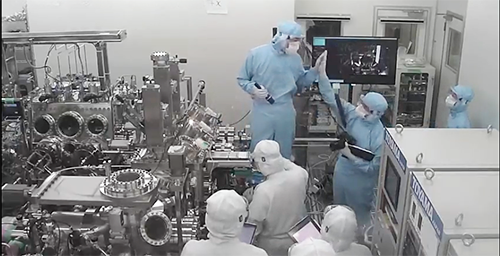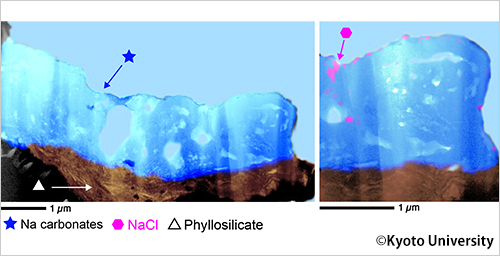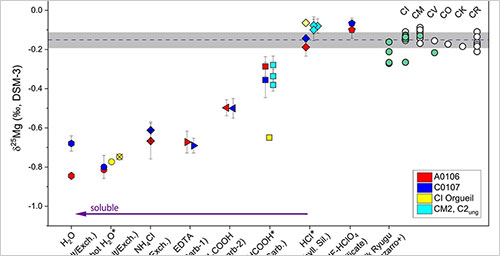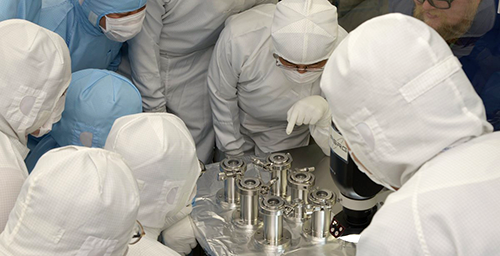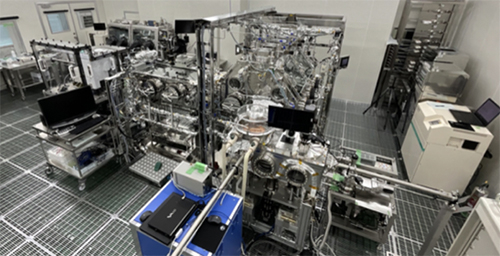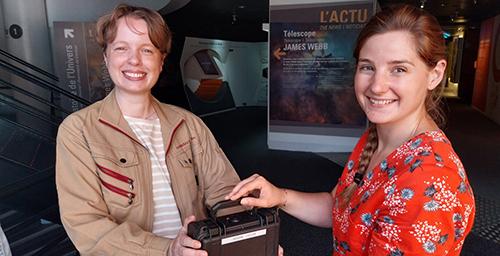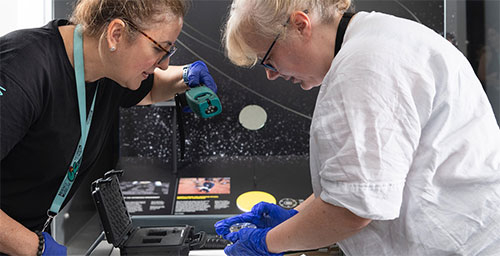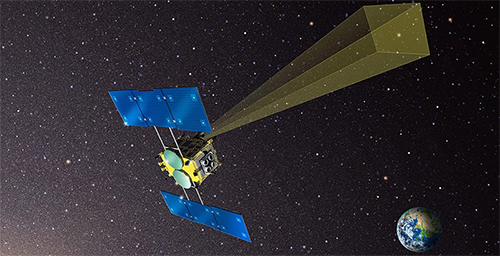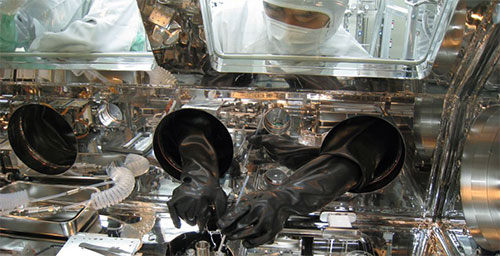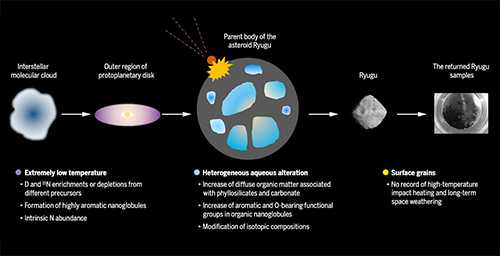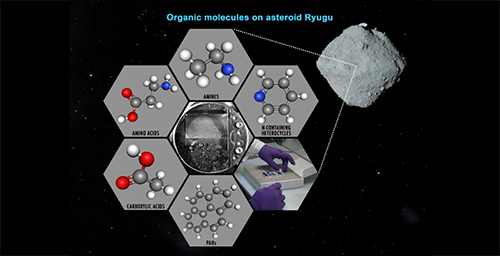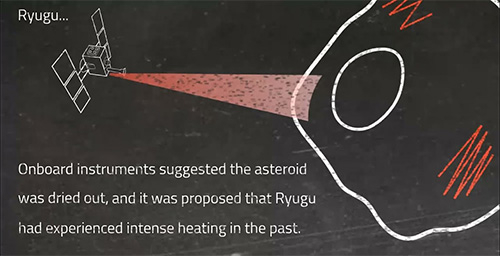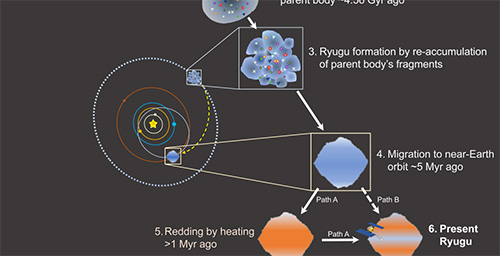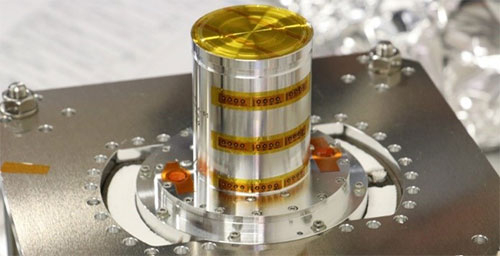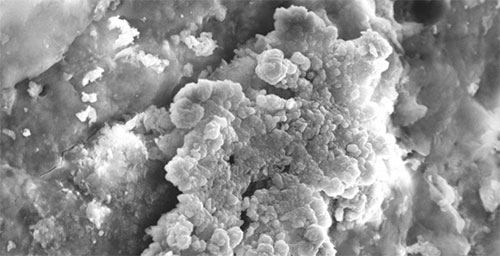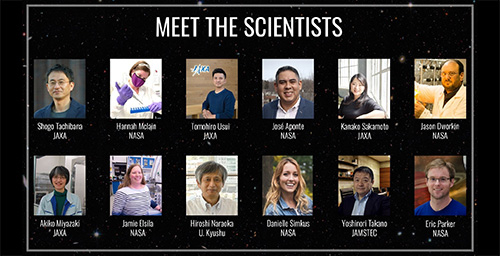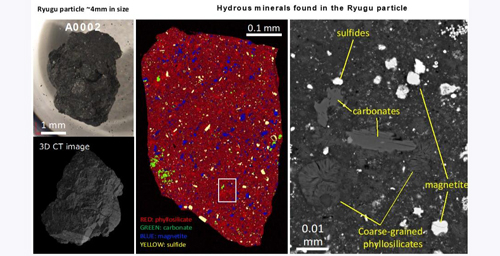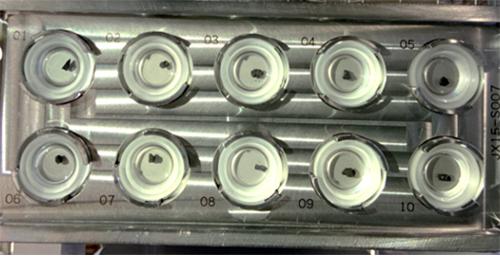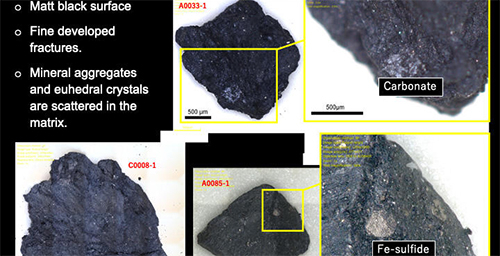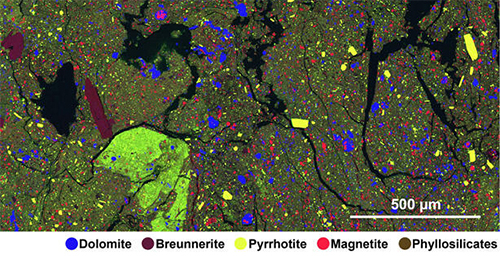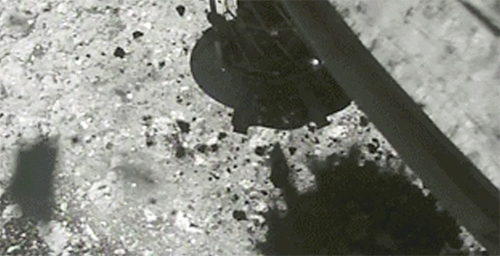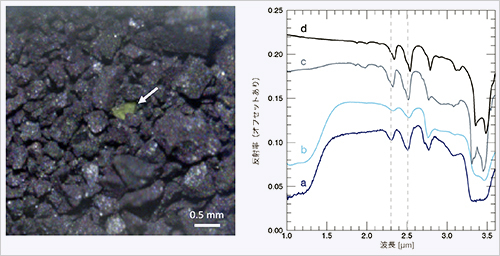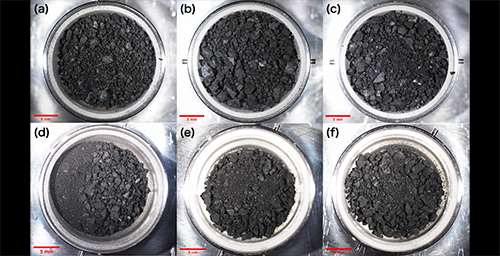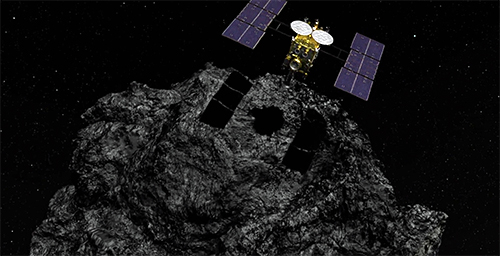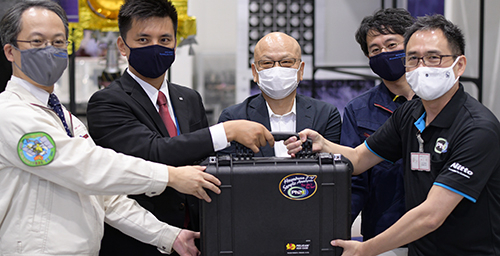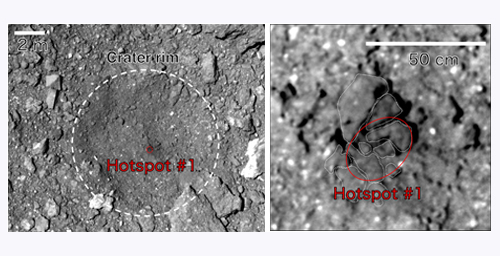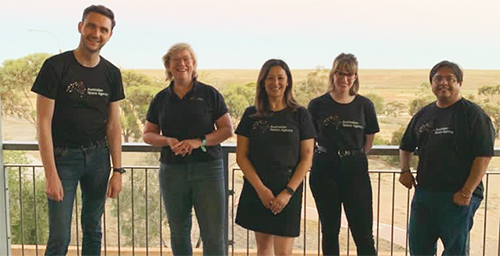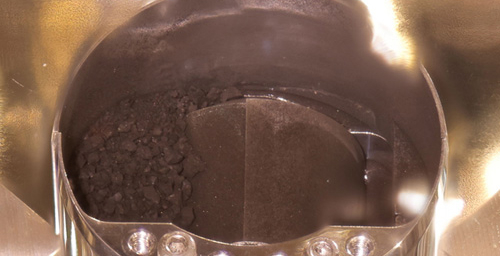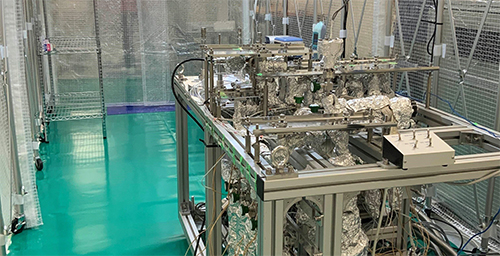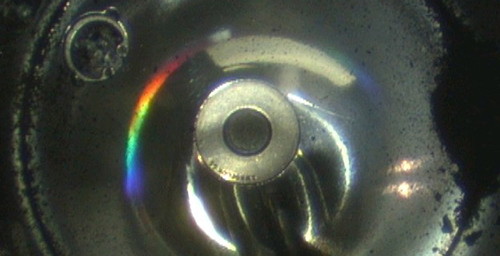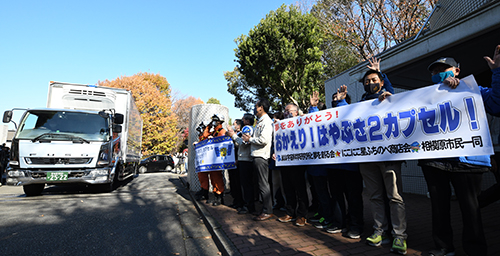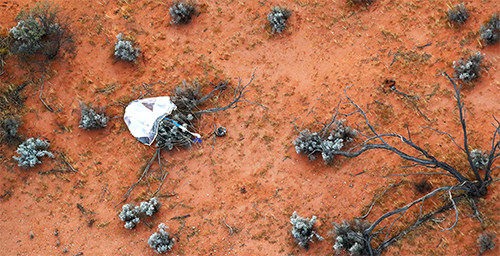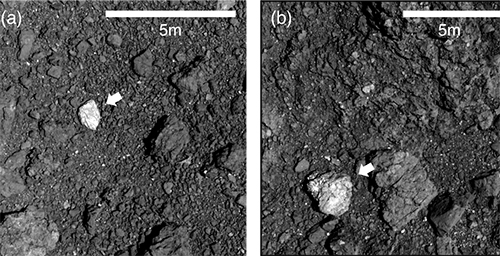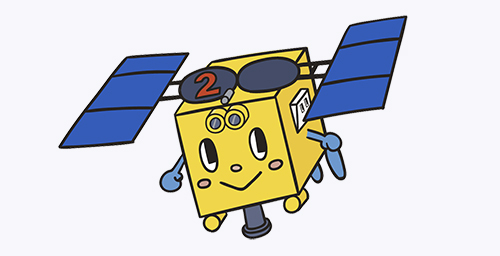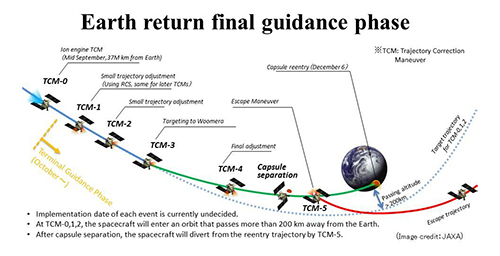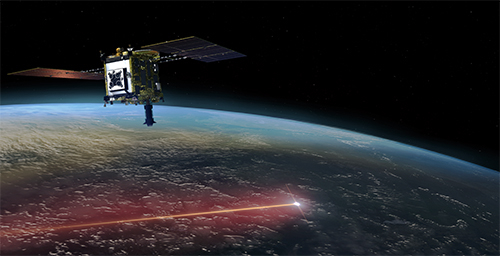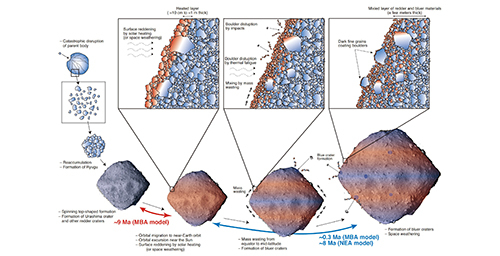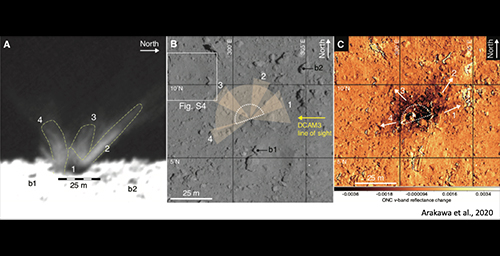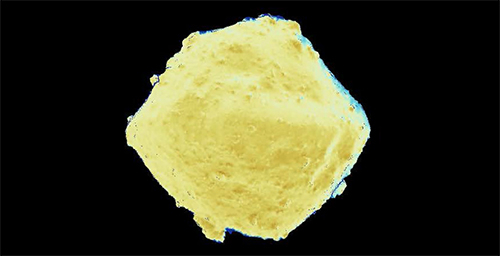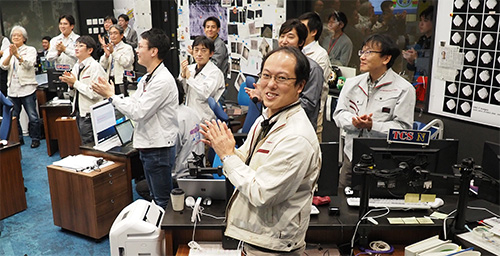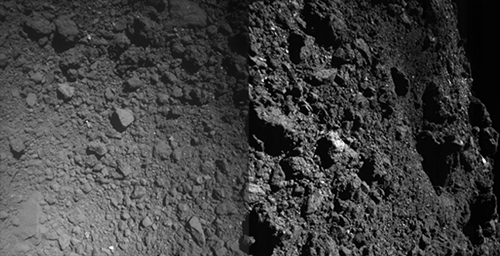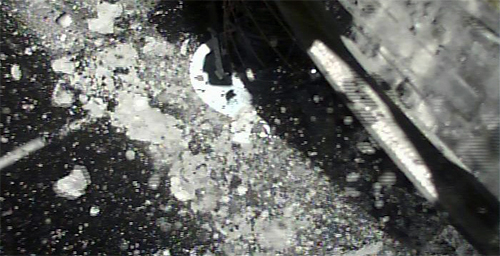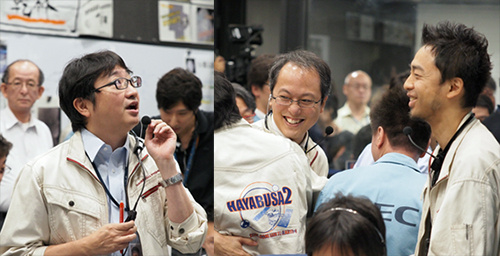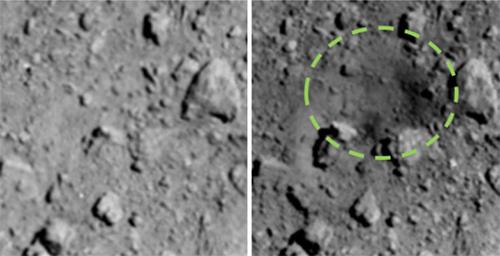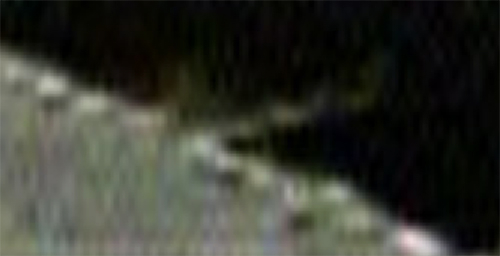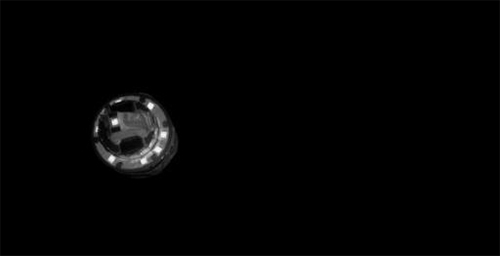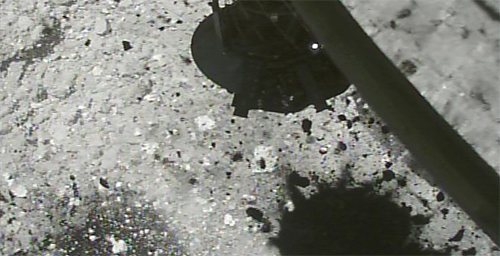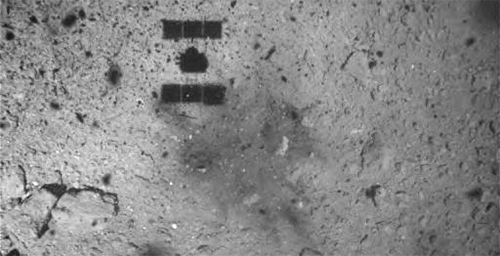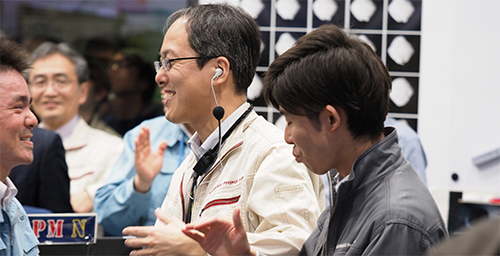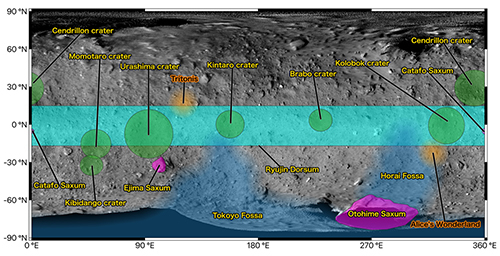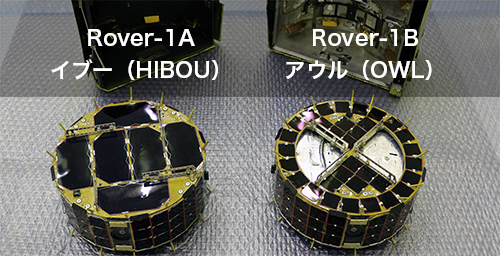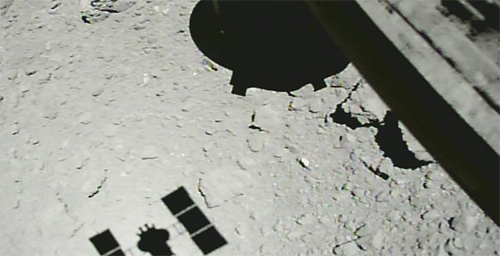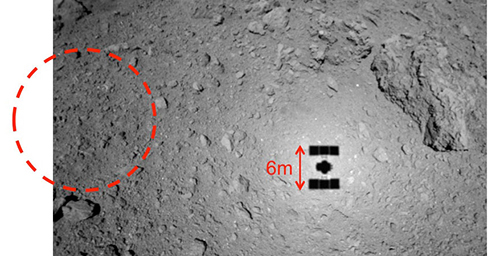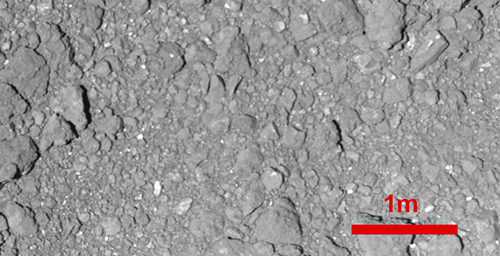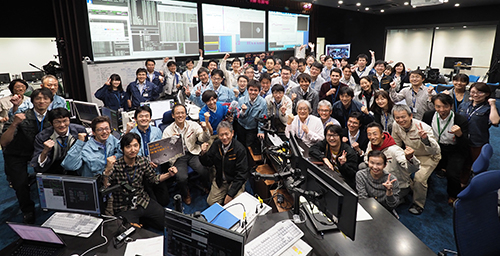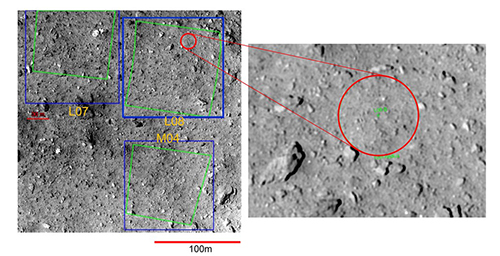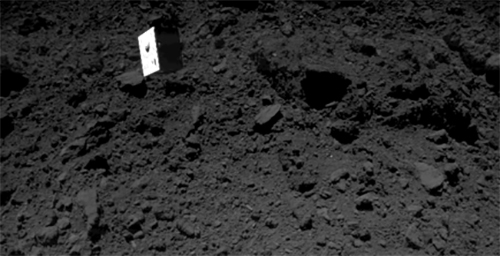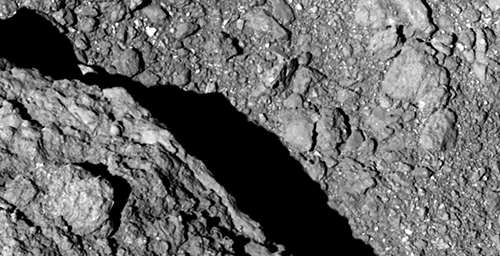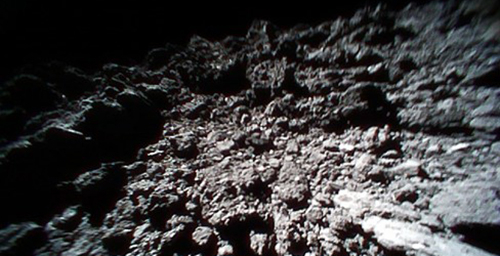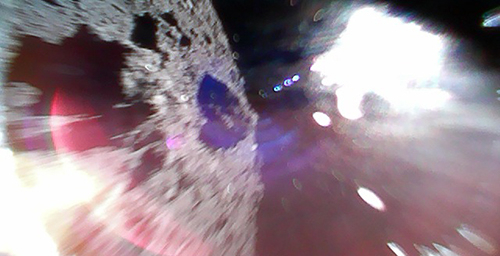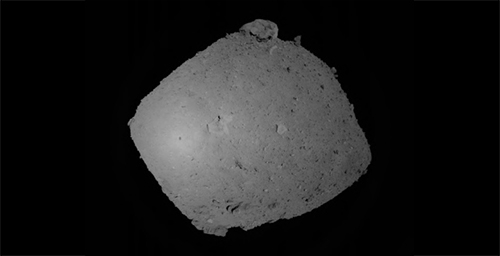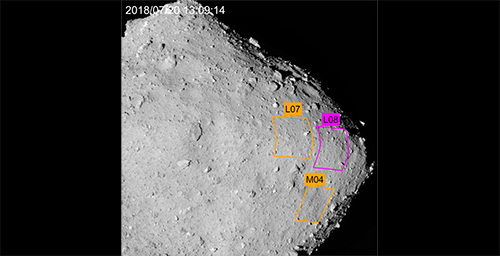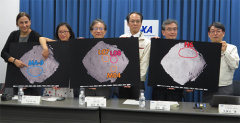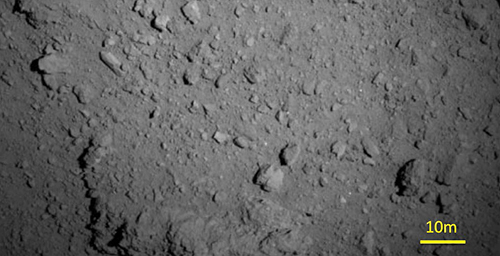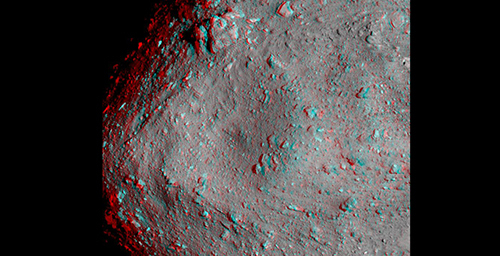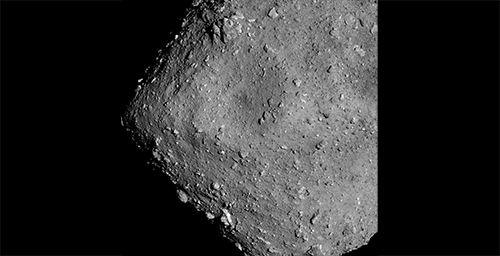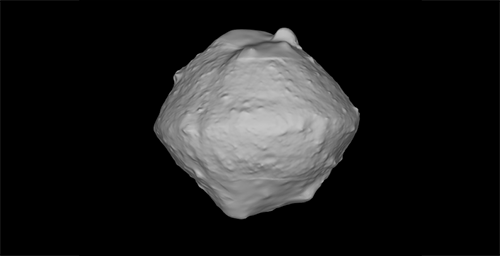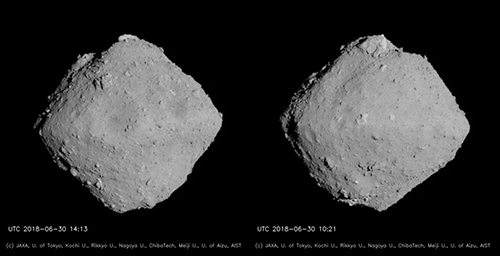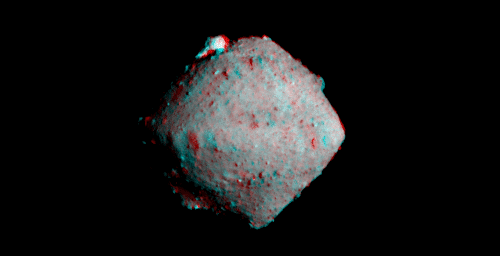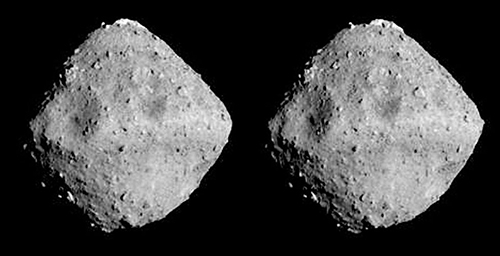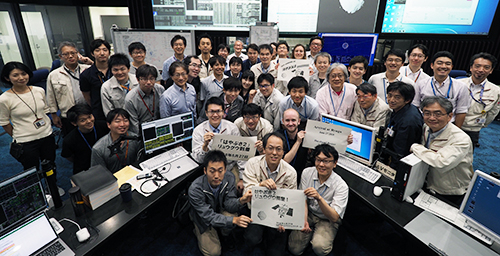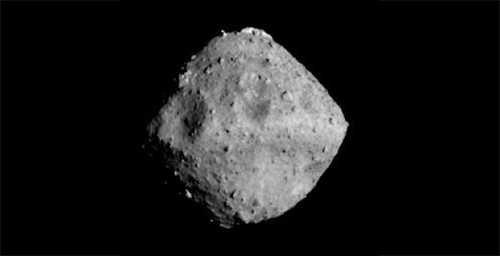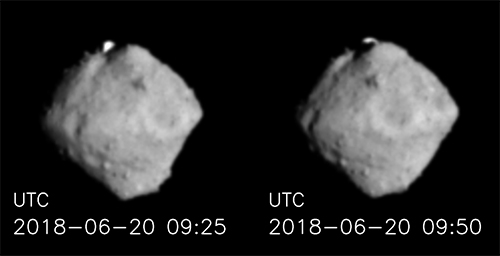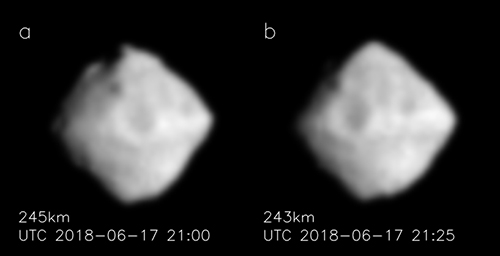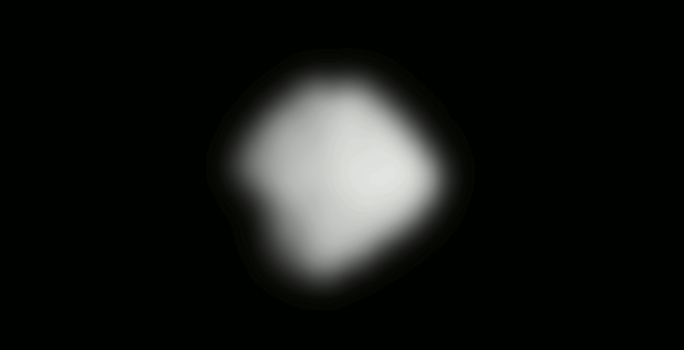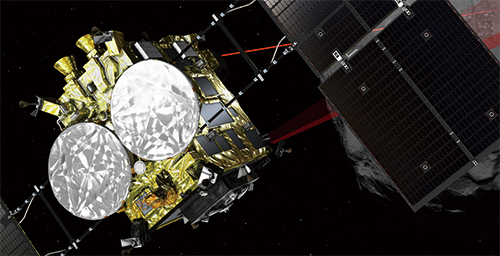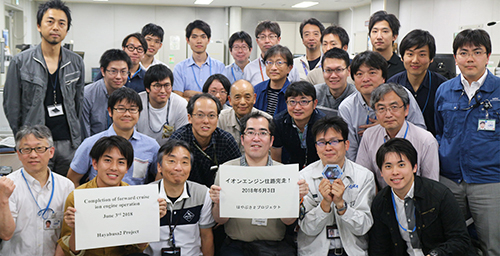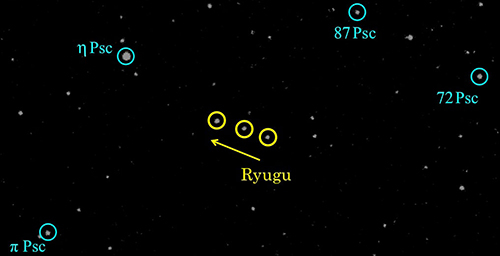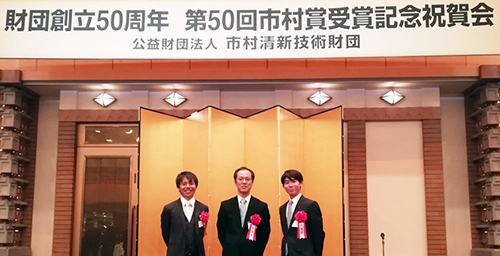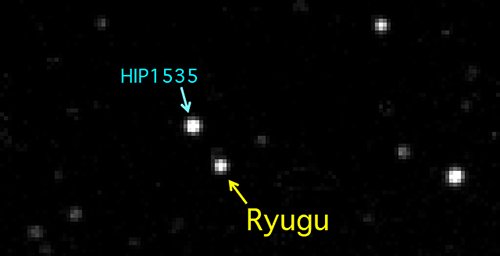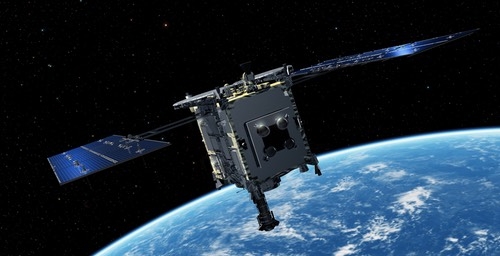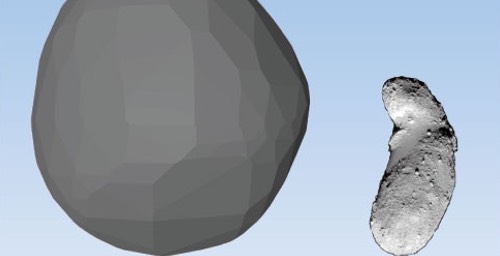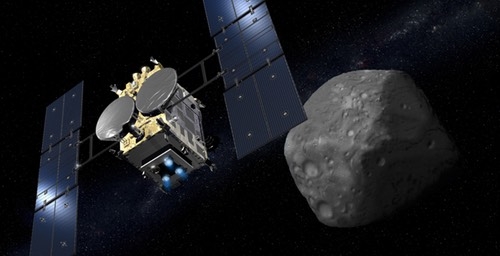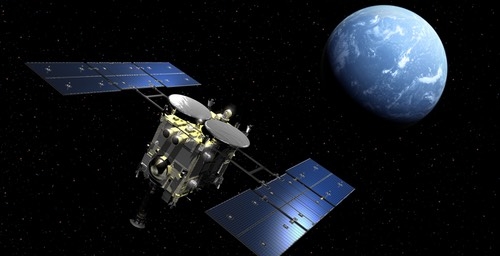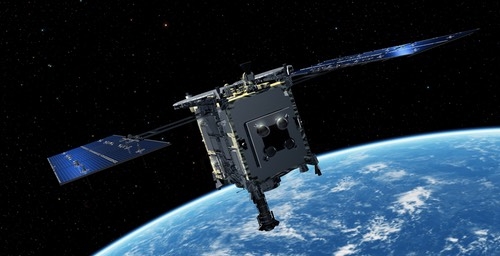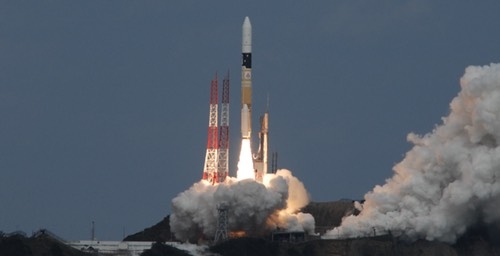On November 13, 2024, a paper titled "Rapid colonization of a space-returned Ryugu sample by terrestrial microorganisms" led by Dr Matthew Genge at Imperial College London was published in the Meteoritics & Planetary Science international journal.
The sample grain A0180 from asteroid Ryugu studied in this research was selected and allocated during the first international research call (Announcement of Opportunity) conducted by the Japan Aerospace Exploration Agency (JAXA). The paper reports that the sample grain was subsequently analysed by X-ray CT under atmospheric conditions, and then a polished section was prepared on one side of the sample grain and observed under an electron microscope. Fibrous and rod-shaped carbon material was confirmed on the polished surface. Based on the shape and change in number during chronological observations, it was concluded that these may be the terrestrial microorganism, Bacillus subtilis. As the sample was delivered from JAXA in a nitrogen-filled sealed container, it was considered unlikely that this contamination occurred before the sample was prepared for analysis after opening. It is argued that contamination likely occurred during the subsequent X-ray CT analysis, or during the preparation of the polished section. This result highlights the importance of contamination management when handling samples.
As described in the discussion of the journal paper, all samples received from JAXA have undergone the initial description, storage, and sealing in dedicated containers under a nitrogen atmosphere. The samples are distributed to researchers without exposure to the Earth's atmosphere. The possibility of microbial contamination is therefore considered extremely low. In addition, organic and microbial contamination assessment of the environment at the curation facilities within JAXA (clean chamber) in which the Ryugu sample grains undergo the initial description are conducted 1 ~ 2 times a year. It has been confirmed and reported that the concentration of organic matter is at or below the same level as that of the OSIRIS-REx asteroid return sample glove box at the NASA Johnson Space Center, and that no microbial colonies have been detected in the microbial contamination assessment conducted with swabbing and culture medium (Yada et al., 2023). Based on these facts, we agree that the microbial contamination described in the paper did not occur during a process within JAXA, but under the laboratory environment of the allocated researchers.
In response to the international research call, each principal investigator proposes a research plan, which is reviewed by international experts and the necessary sample amounts are allocated to the selected themes. The original proposal for this paper was selected and samples allocated via this process, but the proposed theme was a comparative study of Ryugu sample grains and micrometeorites found on the Earth, which differs from the contents of the paper. JAXA did not evaluate or select research proposals for sample distribution based on the contents of this paper, which examined microbial contamination of extraterrestrial samples.


